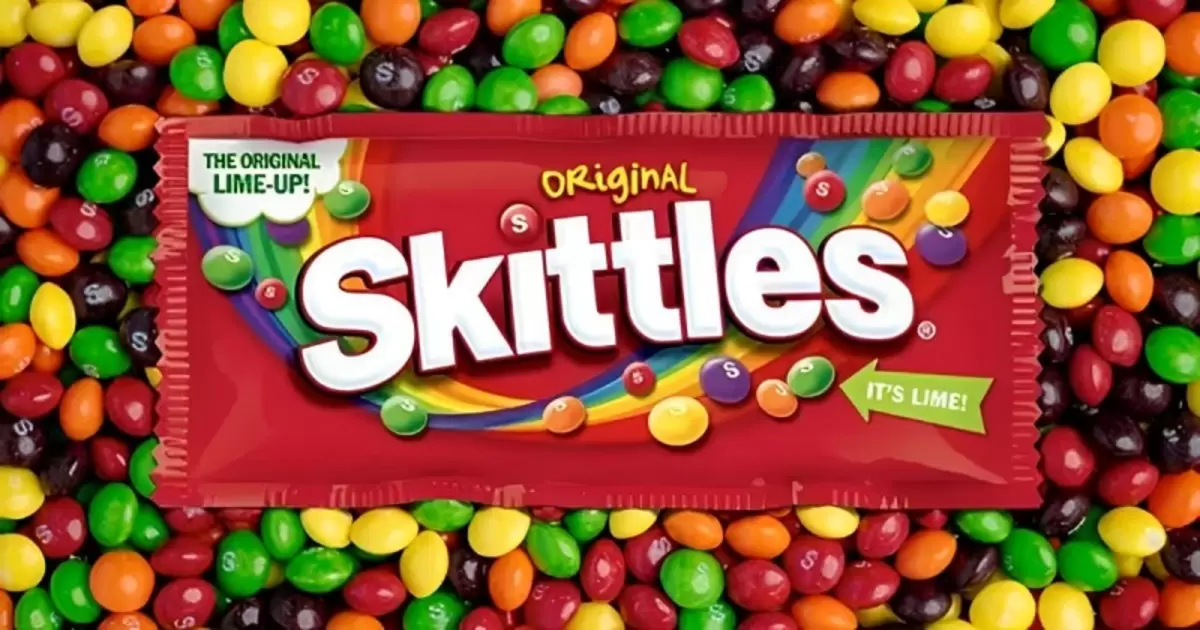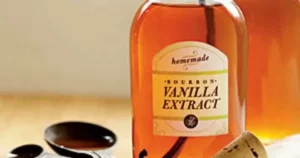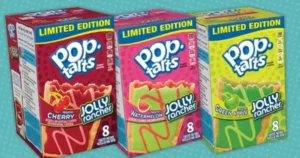Skittles are colorful, bite sized candies loved by many. These sweet treats come in a rainbow of fruity flavors and are often found in a small, round shape. They make your taste buds dance with joy. Skittles are perfect for sharing with friends or enjoying all by yourself. Just grab a handful, and let the fun, fruity flavors burst in your mouth.
Welcome to our comprehensive guide: We’ll explore the world of Skittles to answer the question, “Are Skittles Halal?” Discover the ingredients, production process, and more to make informed decisions while enjoying these tasty treats. Let’s delve into the delightful world of Skittles and find out the answer you seek.
Whether you’re a Skittles enthusiast or just someone looking for Halal treats, we’ve got you covered. Our guide will help you navigate the world of Skittles, ensuring that you can enjoy these tasty treats while adhering to your dietary preferences. Let’s dive into the details and find out if Skittles are, indeed, Halal.
Skittles Ingredients
Skittles ingredients are crucial to determine if they’re Halal. These bite sized candies typically include sugar, corn syrup, hydrogenated palm kernel oil, fruit juices, citric acid, and natural and artificial flavors.
These ingredients are generally considered Halal, but it’s a good habit to check for any specific certification on the packaging to ensure they meet your dietary preferences. Enjoy Skittles with confidence, knowing they’re often suitable for a Halal diet.
Citric Acid
Citric acid is an ingredient often found in Skittles and many other candies. It gives a tangy, zesty flavor to these treats. Don’t worry, citric acid is generally considered Halal. It’s a natural compound found in fruits like lemons and limes.
So, when you enjoy Skittles and wonder, “Are Skittles Halal?” You can feel confident because citric acid is a safe and tasty ingredient that adds that extra zing to your favorite candies.
Tapioca dextrin
Tapioca dextrin is like a helper for candies, just like Skittles. It is a substance made from tapioca starch, often used to give candies their delightful crunch. You might find it in Skittles, and it’s generally considered Halal.
Tapioca dextrin doesn’t usually pose any dietary concerns, so you can enjoy your Skittles with peace of mind. It’s just one of the many ingredients that make Skittles so tasty.
Corn Syrup
Corn syrup, often found in candies like Skittles, is a sweet, gooey liquid made from corn. It is used to make candies taste delicious. It is important to know that corn syrup is usually Halal friendly because it doesn’t contain forbidden ingredients.
So, you can enjoy Skittles with confidence, knowing that the sweet taste comes from this safe and tasty syrup. Remember, always check the packaging for complete certainty.
Modified corn starch
Modified corn starch is a common ingredient you might find when checking if Skittles are Halal. It is derived from corn and used to give texture to foods like Skittles. The good news is that it’s usually considered Halal.
But it is still a good idea to make sure it’s mentioned as an ingredient on the Skittles packaging. This way, you can enjoy your Skittles with confidence, knowing they meet your Halal dietary requirements.
Carnauba Wax
Carnauba wax, often found in candies like Skittles, is a natural wax from the leaves of the Brazilian carnauba palm tree. It is used to add a shiny, protective coating to candies. Don’t worry, it is safe and Halal.
This wax also shows up in car wax and even shoe polish. So, while it makes your Skittles look shiny, it is versatile and quite useful in everyday life too. Enjoy your Skittles, knowing they’re Halal and with a touch of carnauba wax magic.
Sodium Citrate
Sodium Citrate is a special ingredient used in some food products like Skittles. It helps control acidity and makes candies taste better. It’s not related to whether Skittles are Halal or not.
To find out if Skittles are Halal, you should look at their ingredients and any Halal certification on the package. Sodium Citrate is just one piece of the puzzle when checking if a treat like Skittles meets your dietary preferences.
Hydrogenated Palm kernel oil
Hydrogenated Palm Kernel Oil is an ingredient found in some Skittles. It helps make the candy smooth and adds a creamy texture. But, it is vital to know that for some people who follow Halal dietary guidelines, this ingredient might not be considered Halal.
It is a good idea to check the Skittles packaging for specific information to see if they meet your dietary needs. This way, you can enjoy your Skittles with peace of mind, knowing they align with your choices.
Colors
Colors are what make Skittles so fun and exciting. When we talk about Skittles, colors matter too. Skittles come in various vibrant colors, and they use natural colorings in their candies.
So, you can enjoy the rainbow of Skittles knowing that these delightful colors are safe and Halal for your enjoyment. The colors of Skittles add to the joy of tasting these sweet treats and are a part of what makes them so special.
Natural and Artificial Flavors
Flavors in candies and foods can be natural or artificial. Natural flavors come from things like fruits and plants, while artificial flavors are made in a lab. Both make our favorite treats taste good.
When you enjoy Skittles, you’ll find a mix of these flavors that create the delicious, fruity taste. So, whether you’re savoring the sweet tang of an orange or the zesty zing of a lemon, you’re experiencing the magic of flavors, both natural and artificial.
Halal Skittles
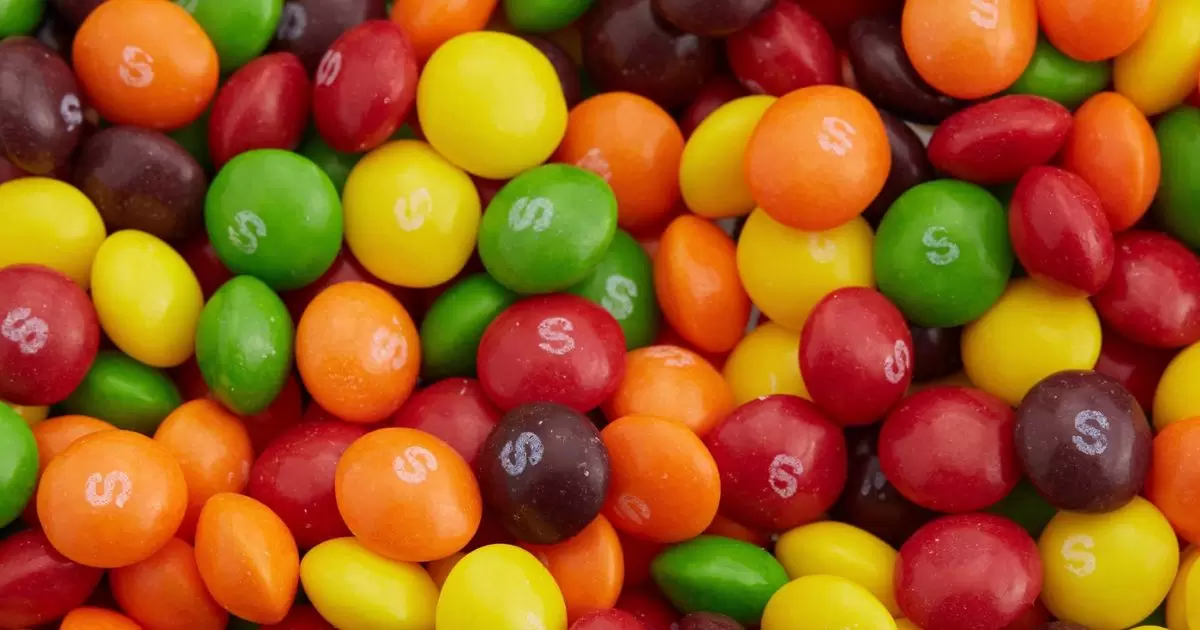
Enjoy the sweetness of Skittles while adhering to your dietary preferences with these delightful candies. Halal Skittles are crafted with care, ensuring that their ingredients meet the requirements of a Halal diet.
You can savor the fruity flavors without worry, making them a fantastic choice for sharing with friends who share your dietary choices. These colorful treats bring joy to your taste buds, making them a delightful addition to your snack time.
Non-halal Skittles
Skittles that aren’t Halal may include ingredients that don’t meet Islamic dietary restrictions. It’s essential to be aware of this, especially if you follow a Halal diet. These particular Skittles might contain substances that aren’t permissible in Islam.
To ensure your snacks align with your dietary preferences, always check the ingredients listed on the packaging or look for specific Halal certifications. Being informed about the ingredients can help you make choices that match your dietary needs and beliefs.
Alternatives to Skittles
Consider exploring a variety of fruit flavored gummies, which come in different shapes and sizes. Sour candies, like chewy belts or sour worms, can also provide a tangy, fun experience.
Chocolate covered candies, such as M&M’s or Reese’s Pieces, offer a different taste altogether. Exploring these options can add a bit of excitement to your snacking adventures, offering a rainbow of choices to delight your taste buds.
Chewwies Gummies
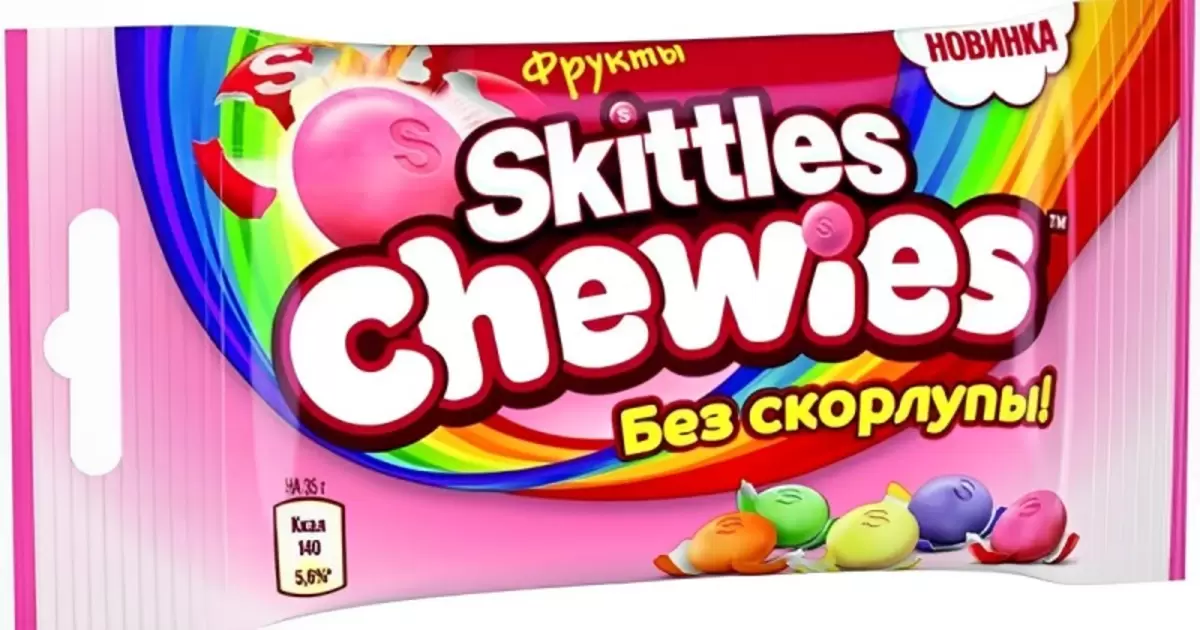
Chewwies Gummies are delightful, chewy candies that bring a burst of fruity flavor to your taste buds. These gummies come in various shapes and colors, making them perfect for a fun and tasty treat.
Whether you’re enjoying them at school or during playtime, Chewwies Gummies are sure to bring smiles with their sweet and tangy taste. Their colorful appearance and delicious flavors make them a fantastic choice for kids and candy lovers.
Conclusion
In conclusion, we’ve explored the delicious world of Skittles and answered the important question, “Are Skittles Halal?” We’ve learned that Skittles are generally considered Halal, as their ingredients typically do not contain any forbidden substances. While they may not always display a specific Halal certification, many people with Halal dietary preferences enjoy these colorful candies with confidence.
It’s essential to be informed about the foods we consume, and we’ve provided you with the knowledge you need to make the right choices. Whether you’re a Skittles enthusiast or simply looking for Halal treats, you can now enjoy these sweet delights without worry.
Remember to check the packaging for any specific certifications or ingredient lists to ensure that Skittles meet your dietary requirements. With this knowledge, you can savor the fruity flavors of Skittles while staying true to your Halal diet.
FAQ’s
- Are Skittles suitable for a Halal diet?
- Yes, Skittles are generally considered suitable for a Halal diet due to their ingredients not containing haram substances.
- Do Skittles have a Halal certification?
- Skittles may not always display a specific Halal certification, but their ingredients are typically Halal friendly.
- Can I share Skittles with my Muslim friends?
- Absolutely, Skittles are a popular choice for sharing with friends who follow a Halal diet.
- Are there any Skittles flavors that are not Halal?
- Most Skittles flavors are Halal, but it’s wise to check the packaging for any potential variations.
- How can I be sure if Skittles are Halal?
- To be certain, always check the packaging for any Halal certification or look for a list of ingredients to ensure they meet your dietary preferences.
